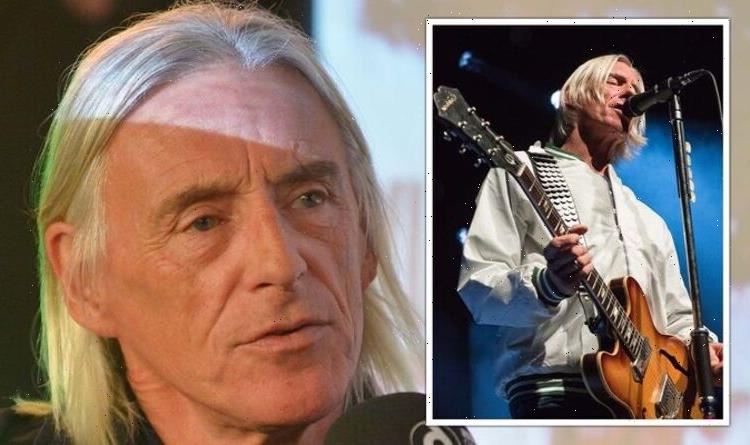Paul Weller performs The Changingman for Radio 2 In Concert
We use your sign-up to provide content in ways you’ve consented to and to improve our understanding of you. This may include adverts from us and 3rd parties based on our understanding. You can unsubscribe at any time. More info
Weller, 63, from Woking in Surrey, started his career as a 14 year old singing covers of The Beatles and other original songs at men’s clubs and bars. It wasn’t long before the star was behind the bar himself. The Town Called Malice singer ended up battling with an alcohol addiction for over 40 years and in a recent interview with the Irish Times, he said he was surprised he “didn’t die or disappear” after his massive success. But the star has survived. In fact, he said his “energy levels are excellent.” What was behind the star’s turnaround?
Weller said: “I would never, ever have expected to be making music into my 60s – it would have been unthinkable to me – but then I also would never have imagined that I’d reach the age of 63.
“As luck would have it, I didn’t die or disappear after having had a few hit songs.”
Things started to turn around for the mod legend after he made a few major lifestyle changes. For many years, Weller has been off the drink, the drugs and has a gym routine.
He said: “All of those changes make a massive difference to my health and my life. My energy levels are excellent. I still lead a very busy lifestyle and I’m certainly not wiped out by it all.

“I wouldn’t like to think what my health – physically, mentally, spiritually – would have been like if I hadn’t stopped the drink and the drugs.”
The star, who said he is “stronger” and “fitter” said he couldn’t understand why people disregard their health.
“I don’t know why people ignore looking at the bigger picture of their health because it makes sense to me to at least try to live your remaining years as strong and fit as you can.”
A report published in The Lancet in 2018 found that having 10 to 15 alcoholic drinks a week may shorten people’s lives by between one and two years, and if they drink more than 18 they can shorten their lives by five years.
This was based on observations of 600,000 drinkers.
Drinking was linked with conditions like stroke, heart failure, fatal aneurysms and fatal hypertensive disease.
Weller stopped his addiction in 2010 after a row with his partner, although he didn’t go to alcoholics anonymous, an organisation which offers steps to curbing alcohol addiction.
He suggested that as a musician he was more prone to alcohol abuse because you are often drinking to your successes and failures.
“As a musician, you’re always celebrating or commiserating, and you need a drink for that. It was so much a part of my life. I’d been doing it for 40 years,” he told The Guardian in May.

“The hardest bit was going onstage without a drink, because I was so self-conscious. But I’m over that now.
“I like being present; I like being able to see and hear what’s going on, and seeing people and seeing their reaction.”
Drinking too much alcohol has been linked with an increase in blood pressure, which can be responsible for the onset of a heart attack and is the leading cause of stroke.
Studies have shown that alcohol can reduce the number of vasodilators in the blood–chemicals responsible for opening the blood vessels–such as Nitric Oxide by interrupting the enzymes responsible for creating it.

The NHS recommends moderation if you’re regularly drinking more than 14 units a week and experienced health problems, or becoming dependent on the substance.
But for people with more severe alcohol issues, they “strongly” recommend completely stopping.
This is advised by the health body especially if you have had liver damage, such as liver disease, or heart disease, if you take medication that reacts badly to drinking, or if you are pregnant.
There are groups that you might find useful if you decide to stop drinking, such as Alcoholics Anonymous.
Source: Read Full Article
